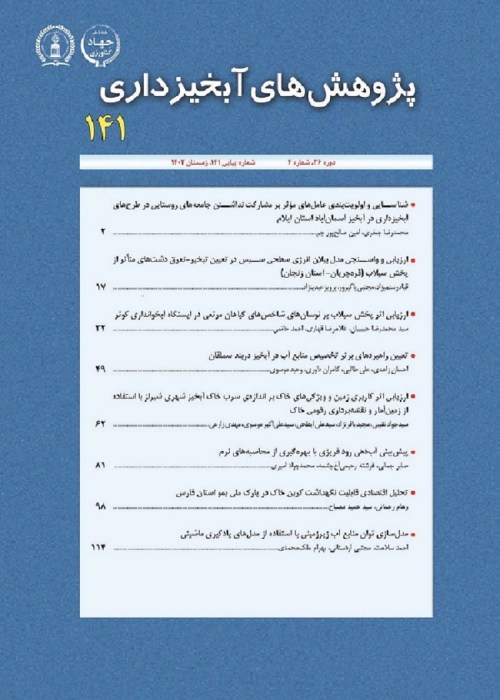Analysis of Institution-Stakeholder Relations for the Nested Water Governance in Downstream of the Kor River Basin
Water has always been one of the most important pillars of life in natural and human societies. The expansion of human societies in natural systems and the loss of balance between water production and supply by watersheds to meet theirs water needs have turned the language of communication in the water sector into a language of conflict. Although human communities are increasingly trying to exploit available water resources, the importance of water and the growing need for it needs attention to be paid to the joint use and respect for each stakeholder's rights, mutual understanding, and respect for the rights of others. On the other hand, extensive studies indicate the ability of local communities and organizations to make sustainable use of shared resources and show how local groups are able to prevent the destruction of these resources by relying on their capabilities. Therefore, in this study, in order to investigate the ability of local communities to change the water governance regime downstream of the Kor River Basin, the social network analysis method and its application in determining the water governance regime was used. Macro-level indicators of the social networks, including density index and network centralization index were used. The results of the analysis of the social network of the local community of Moezabad-e-Gourgir village showed that there is considerable social capital in the connection of trust and participation in this village. On the other hand, the results of network analysis at the organizational level also showed a low level of cooperation and coordination and a high centralization of power (centralized governance regime). By integrating the local community network into the organizational network, the centralization decreased by 31% and changed the water governance regime to a fragmented regime. But due to the lack of proper relations between organizations and the local community, the level of cooperation is still low. Therefore, in order to achieve a polycentric governance regime, it is very important to increase the relations between organizations and local communities based on cooperative and participatory relations. This can increase the adaptive capacity of the socio-ecological system of the Kor river basin to change.
- حق عضویت دریافتی صرف حمایت از نشریات عضو و نگهداری، تکمیل و توسعه مگیران میشود.
- پرداخت حق اشتراک و دانلود مقالات اجازه بازنشر آن در سایر رسانههای چاپی و دیجیتال را به کاربر نمیدهد.


